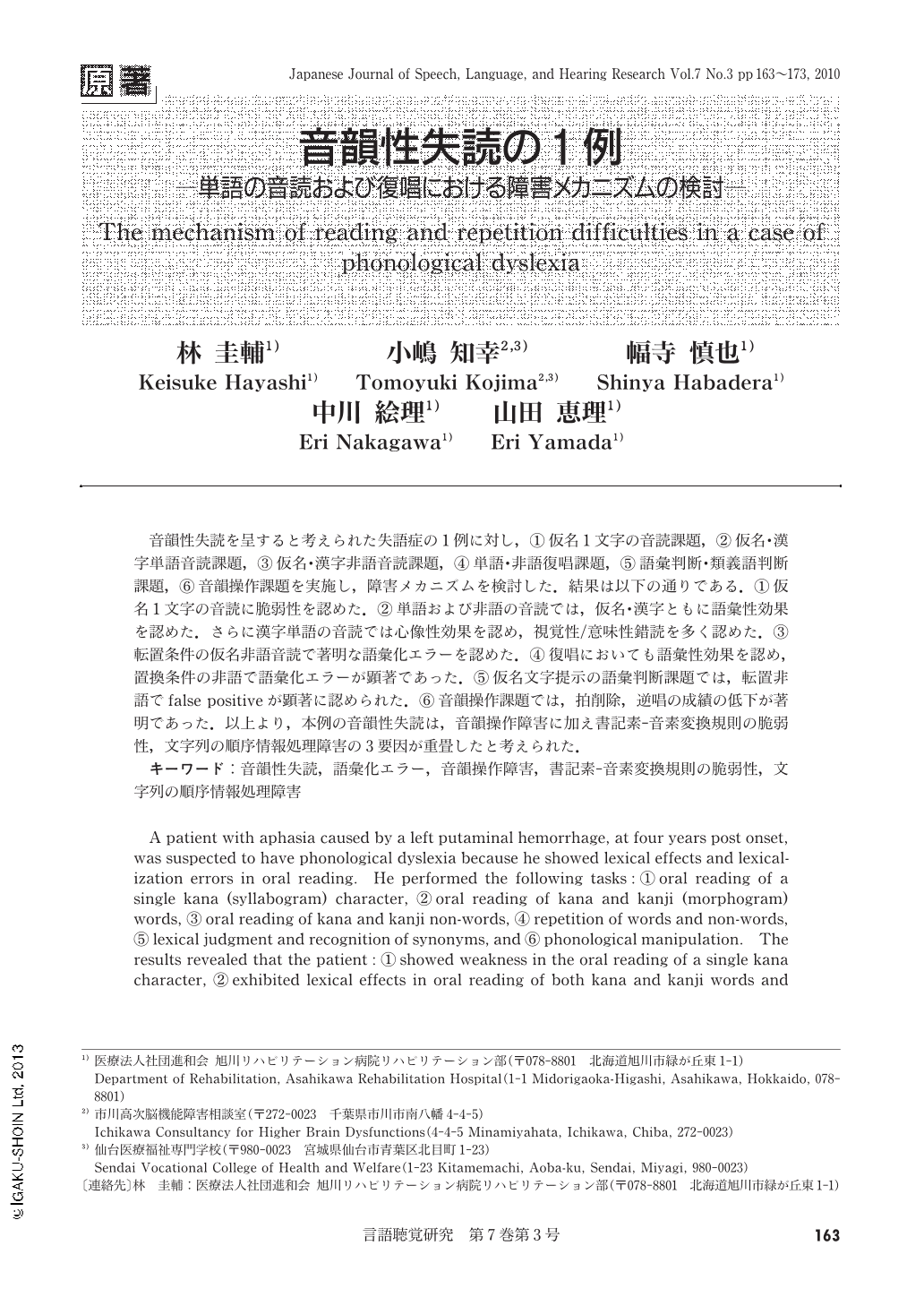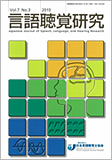Japanese
English
- 有料閲覧
- Abstract 文献概要
- 1ページ目 Look Inside
- 参考文献 Reference
- サイト内被引用 Cited by
音韻性失読を呈すると考えられた失語症の1例に対し,①仮名1文字の音読課題,②仮名・漢字単語音読課題,③仮名・漢字非語音読課題,④単語・非語復唱課題,⑤語彙判断・類義語判断課題,⑥音韻操作課題を実施し,障害メカニズムを検討した.結果は以下の通りである.①仮名1文字の音読に脆弱性を認めた.②単語および非語の音読では,仮名・漢字ともに語彙性効果を認めた.さらに漢字単語の音読では心像性効果を認め,視覚性/意味性錯読を多く認めた.③転置条件の仮名非語音読で著明な語彙化エラーを認めた.④復唱においても語彙性効果を認め,置換条件の非語で語彙化エラーが顕著であった.⑤仮名文字提示の語彙判断課題では,転置非語でfalse positiveが顕著に認められた.⑥音韻操作課題では,拍削除,逆唱の成績の低下が著明であった.以上より,本例の音韻性失読は,音韻操作障害に加え書記素-音素変換規則の脆弱性,文字列の順序情報処理障害の3要因が重畳したと考えられた.
A patient with aphasia caused by a left putaminal hemorrhage, at four years post onset, was suspected to have phonological dyslexia because he showed lexical effects and lexicalization errors in oral reading. He performed the following tasks:①oral reading of a single kana (syllabogram) character, ②oral reading of kana and kanji (morphogram) words, ③oral reading of kana and kanji non-words, ④repetition of words and non-words, ⑤lexical judgment and recognition of synonyms, and ⑥phonological manipulation. The results revealed that the patient:①showed weakness in the oral reading of a single kana character, ②exhibited lexical effects in oral reading of both kana and kanji words and non-words, as well as imageability effects with many signs of visual/semantic paralexia in the oral reading of kanji words, ③frequently committed lexicalization errors on oral reading of kana non-words created by transposition of kana characters, ④presented lexical effects on the repetition of words, while frequently making lexicalization errors in the repetition of non-words created by substitution of phonemes, ⑤frequently made false-positive responses in the lexical judgment of kana transposed non-words, and ⑥showed a marked deterioration in the performance of mora deletion and reversed repetition among phonological manipulation tasks. Based on these results, the patient's phonological dyslexia was considered to have three underlying factors:①impairment in phonological manipulation, ②complication by the weakness of grapheme-phoneme conversion rules, and ③impairment in sequential information processing for character strings.

Copyright © 2010, Japanese Association of Speech-Language-Hearing Therapists. All rights reserved.


